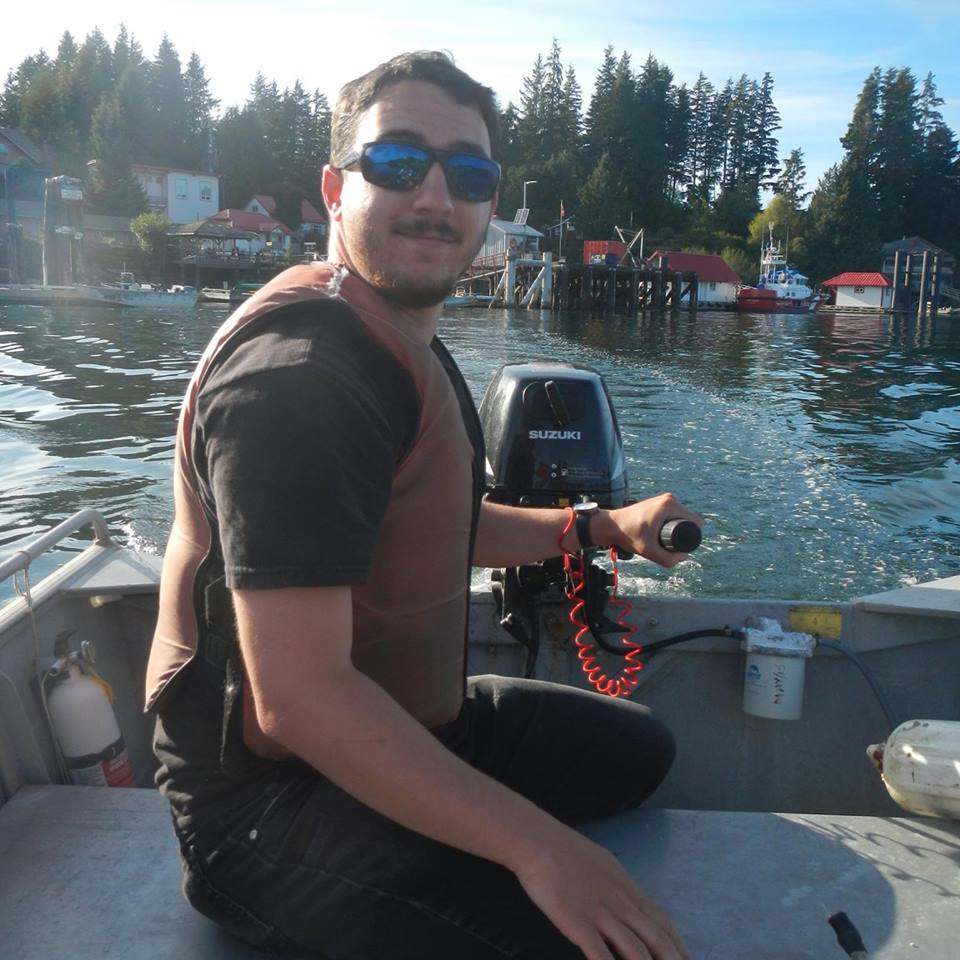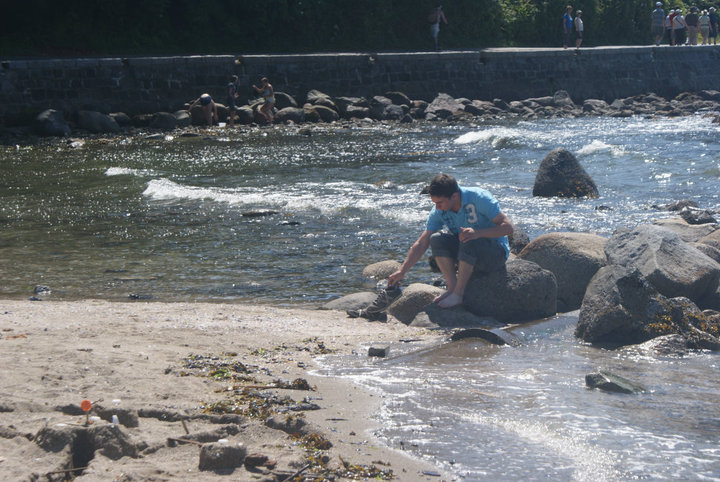
Simon-Luc Noel
Although his last name means ‘Christmas’ in French, six years ago, Simon-Luc Noel exchanged North-Pole-like Beaumont in Alberta for the far more temperate Vancouver. He has not regretted it one bit.
For Simon-Luc, the ‘rain city’ has been a place of learning. First, he registered at the University of British Columbia where he completed a bachelor’s degree in Oceanography and Biology; then, he joined the Sea Around Us where he furthered his understanding of some of the urgent issues affecting the global oceans.
Talking about the moment when he applied to become a research assistant, Simon-Luc states that he was (and still is) convinced that “the idea of reconstructing catches to provide estimated numbers where most would simply put a zero is valuable and interesting. Thus, this seemed like the perfect opportunity to get stuck into learning about global fisheries, while I decide on a Master’s degree down the line, and eventually a Ph.D.”
At the Sea Around Us, Simon-Luc was in charge of searching for new information coming from, and happenings taking place in a variety of countries, in order to update country catch reconstructions to the most recent available year of FAO data.
“The part I enjoyed the most was learning about so many different countries’ fishing situations. Even if the reconstructions required little change to update them, it was valuable to know just how many countries are fishing in so many different ways and the interlinks between countries, fisheries management organizations, and fishers themselves,” he says.
By analyzing data from France, Mozambique, Japan, Bermuda and many other countries, Simon-Luc realized that things vary enormously from one place to the next, although a common theme he realized suggested that “it really brought home the idea that the West’s experience with fisheries can be incredibly different from the rest of the world’s- and that it is worth looking at the rest of the globe with a careful eye and an openness to estimates,” he says.
Simon-Luc illustrates this statement using the case of Madagascar. While researching the fisheries on the island, he discovered an external estimate of subsistence fishing that dwarfed the estimate from the original Sea Around Us reconstruction. This was a big surprise. “It showed how much invisible fishing potentially exists in the world, depending on who you talk to and where you look. It was also a keen reminder that assumed ‘insignificant’ subsistence fisheries, in certain parts of the world, are overlooked at our own risk,” he says.
With all this wisdom and new experiences in hand, Simon-Luc now leaves our team to pursue new opportunities at Simon Fraser University (also in rainy Vancouver). “Since the project I’m working on will be collecting a large amount of data, I think there will be lots of opportunities to apply the data-handling skills I’ve learned,” he says with a smile.
Good luck at SFU, Simon-Luc!”


